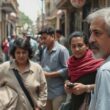The German government is facing renewed scrutiny over the increasingly assertive rhetoric surrounding the potential repatriation of Syrian refugees, with Chancellor Olaf Scholz’s office publicly defending Foreign Minister Johann Wadephul’s recent statements. Minister for Special Affairs, Thorsten Frei, delivered a robust endorsement of Wadephul’s perspective in an interview with the “Rheinische Post”, attempting to contextualize the Minister’s views as a natural response to the realities observed in Syria.
Frei framed Wadephul’s remarks not as a rejection of the responsibility to provide asylum, but rather as an acknowledgement of the evolving situation on the ground. “Those who witness the devastation and suffering directly within a protracted conflict zone, where fighting and killings occurred until very recently, are understandably marked by that experience” Frei stated, effectively attempting to soften the perception of insensitivity that has accompanied Wadephul’s pronouncements.
Critically, Frei emphasized that Wadephul’s remarks did not challenge the necessity of returns, a point that has been central to ongoing criticism from refugee advocacy groups and opposition parties. The Minister highlighted figures released by the UNHCR, indicating a return of approximately three million Syrians to their home country or neighboring nations, presenting these numbers as a cause for “optimism.
However, the assertion that the Syrian civil war is effectively over, a key underpinning of the potential return policy, is facing considerable skepticism from independent observers and human rights organizations. Persistent reports of ongoing instability, sporadic violence and the uncertain future of displaced Syrian citizens cast doubt on the government’s assessment.
Furthermore, Frei’s framing of repatriation as almost a “duty” for Syrian citizens, obligated to rebuild their homeland, risks oversimplifying the immense challenges faced by returning populations, including lack of infrastructure, legal uncertainties and the ongoing risk of persecution. The emphasis on a return-oriented model of aid, while presented as a logical framework, also fails to adequately address the complex needs of those who remain vulnerable and may not be able to safely return. This policy direction is drawing increasing questions about the government’s responsibility to balance the practicalities of migration management with the humanitarian implications for Syrian refugees.





